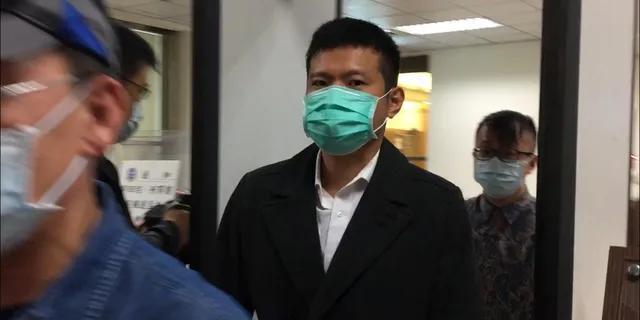When Tsai Ing-wen, the leader of the DPP authorities, visited the Pacific island countries the year before, but his security personnel used a special plane to carry nearly 10,000 smuggled cigarettes to break through the customs; Wu Zongxian and Zhang Hengjia, former "major" officers in the "guard room" of Tsai Ing-wen's official residence, were sentenced to 10 years, April, and 2010 in prison on the basis of "loading tax-evasive items with public means of transport." Wu and Zhang zongxian were sentenced to 10 years in prison in the first instance on the basis of "loading tax-evasive items with public means of transport." Wu and Zhang Zongxian appealed.

According to Taiwan's Lianhe Pao, Wu Zongxian said in court that he denied "crime" and considered himself "innocent", that his personal behavior had no "criminal intent", and that he had purchased cigarettes based on the practice of special cases over the years. Taiwan's "China Airlines" and customs officers have not stopped or reminded him over the years, and he does not know that his behavior "violates the law" and "violates the law."
The judge asked wu Zongxian and Zhang Hengjia about the reasons for buying duty-free cigarettes that exceeded the standard of ordinary people; Wu Zongxian said that according to the practice of special cases in previous years, he did not consider himself to be like an ordinary passenger, and that he was not the first time to perform the task, but believed in "China Airlines" according to the principle of trust, and "China Airlines" also encouraged them to "buy more" and provided them with official menus and schedules for their reference.
Wu Zongxian said that when carrying cigarettes over the years, they were in public and did not oppress any enforcement personnel at the scene, and Taiwan's aviation police and customs were also at the scene, and there was no inspection or reminder, so he believed that the behavior was "legal" and reasonable.
Wu Zongxian pointed out that he personally has no demand for tobacco products, but as an undertaker, he is responsible for counting the number of cigarettes, and the work has been passed down for many years, and he believes that buying cigarettes is what the administrative work must do, not his initiative.
The judge asked whether the main work of following Tsai Ing-wen out was to maintain security and Taiwan security, and whether he also believed that buying cigarettes was part of Taiwan's security. Wu Zongxian said that buying cigarettes is not a part of Taiwan's security, but his work also includes administration, so he believes that buying cigarettes is also a part of the administrative work of Tsai Ing-wen's outgoing project.
Wang Zhenzhi, a lawyer appointed by Wu Zongxian, said that in this case, Wu Zongxian had a special case to exempt himself from the identity of special passengers, and it was not at all reasonable for the inspection and investigation to apply the applicable standards for ordinary passengers, and he also believed that this case involved the "protection of basic rights" in Article 22 of the current constitutional system in Taiwan; the obligatory taxpayers were smokers and "China Airlines", should not be Wu, and there was no subjective intention to evade taxes.
Wu Zongxian appointed lawyers You Boxiang and Lin Junhong pointed out that the appeal held that the withheld tobacco products were not tax evasion items, so it would not constitute corruption and the "tax collection law", and wu Zongxian lacked "illegal confessions" and no "criminal intent".